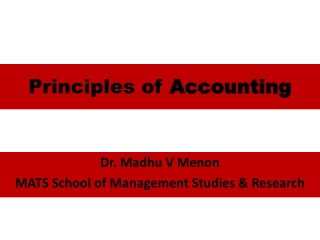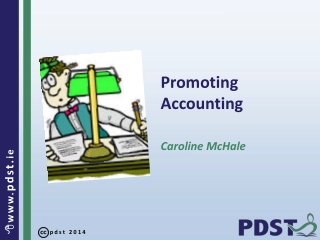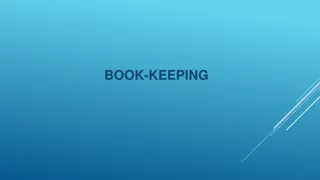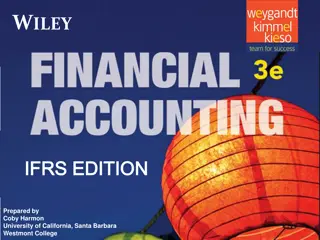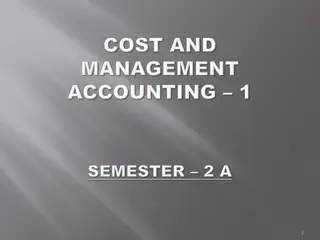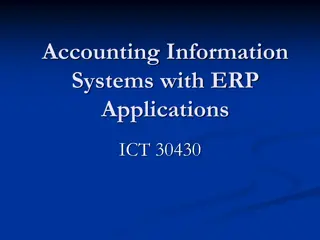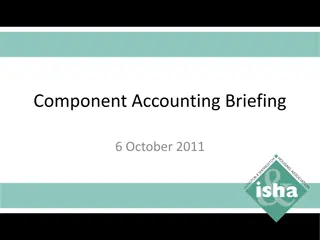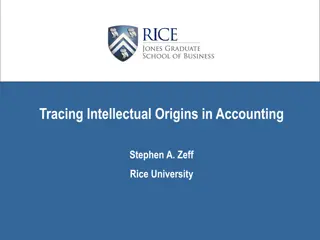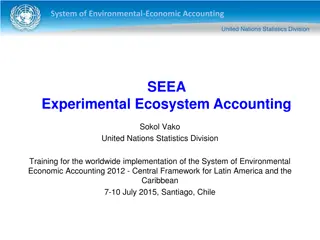Accounting Conventions and Principles Overview
Accounting conventions are customs and traditions that guide accountants in preparing financial statements. Key conventions include conservatism, consistency, materiality, and full disclosure. The convention of conservatism emphasizes anticipating losses and expenses over profits, while consistency requires applying accounting practices uniformly. Materiality focuses on identifying significant details, and full disclosure mandates comprehensive reporting of all essential information for stakeholders' benefit.
Download Presentation

Please find below an Image/Link to download the presentation.
The content on the website is provided AS IS for your information and personal use only. It may not be sold, licensed, or shared on other websites without obtaining consent from the author.If you encounter any issues during the download, it is possible that the publisher has removed the file from their server.
You are allowed to download the files provided on this website for personal or commercial use, subject to the condition that they are used lawfully. All files are the property of their respective owners.
The content on the website is provided AS IS for your information and personal use only. It may not be sold, licensed, or shared on other websites without obtaining consent from the author.
E N D
Presentation Transcript
ACCOUNTING CONVENTIONS
CONVENTIONS ARE CUSTOMS AND TRADITIONS WHICH ARE USED TO GUIDE THE ACCOUNTANT FOR PREPARATION OF ACCOUNTS. THE CONVENTIONS BEING FOLLOWED BY AN ACCOUNTANT ARE AS FOLLOWING:-
1.Convention Of Conservatism- The Convention Of Conservatism Says, While Recording Business Transactions Anticipate All Possible Losses And Expenses But Do Not Provide For Anticipated Profits. Due To Applicability Of The Convention Of Conservatism, Inventory Is Recorded At Lower Of Cost Or Market Value And Firms Provide For Anticipated Bad And Doubtful Debts. But This Convention, Also Contradicts The Convention Of Full Disclosure And Basic Tenet Of Preparing Financial Statements That Accounts Should Show True And Fair Value. Since Application Of Conservatism Principles Leads To The Understatement Of Profits And Assets And Overstatement Of Liabilities. So, This Conventions Needs To Be Applied With Caution.
2.Convention Of Consistency-As Per This Convention, Accounting Practices Need To Be Applied With Consistency And They Should Not Be Changed Year After Year. For Example, If FIFO Method Is Used For Costing Of Inventory, It Should Be Used Year After Year. But, Consistency Never Means Rigidity. It Does Not Deny The Application Of Improved Practices, With The Only Condition That Along With The Changes In Accounting Practices, The Impact Of Change Should Also Be Disclosed In The Financial Statements.
3. Convention Of Materiality- As Per This Convention While Identifying And Measuring Transactions Attention Should Be Paid Towards Material Details And Insignificant Details Should Be Ignored. It Is Up To The Discretion Of Accountant To Decide Which Detail Is Material . A Content Is Supposed To Be Material If Its Disclosure Is Likely To Influence The Judgement Of A Rational Person.
4. Convention Of Full Disclosure- There Should Be Complete And Understandable Reporting Of All Significant Information Of An Entity. There Should Be Full And Fair Disclosure Of Information In The Interest Of Different Stakeholders. This Convention Is More Important For Corporate Form Of Organization Being Owner And Management To Different Groups. Footnotes Appended With Financial Statements Shows Impact Of Convention Of Full Disclosure.


